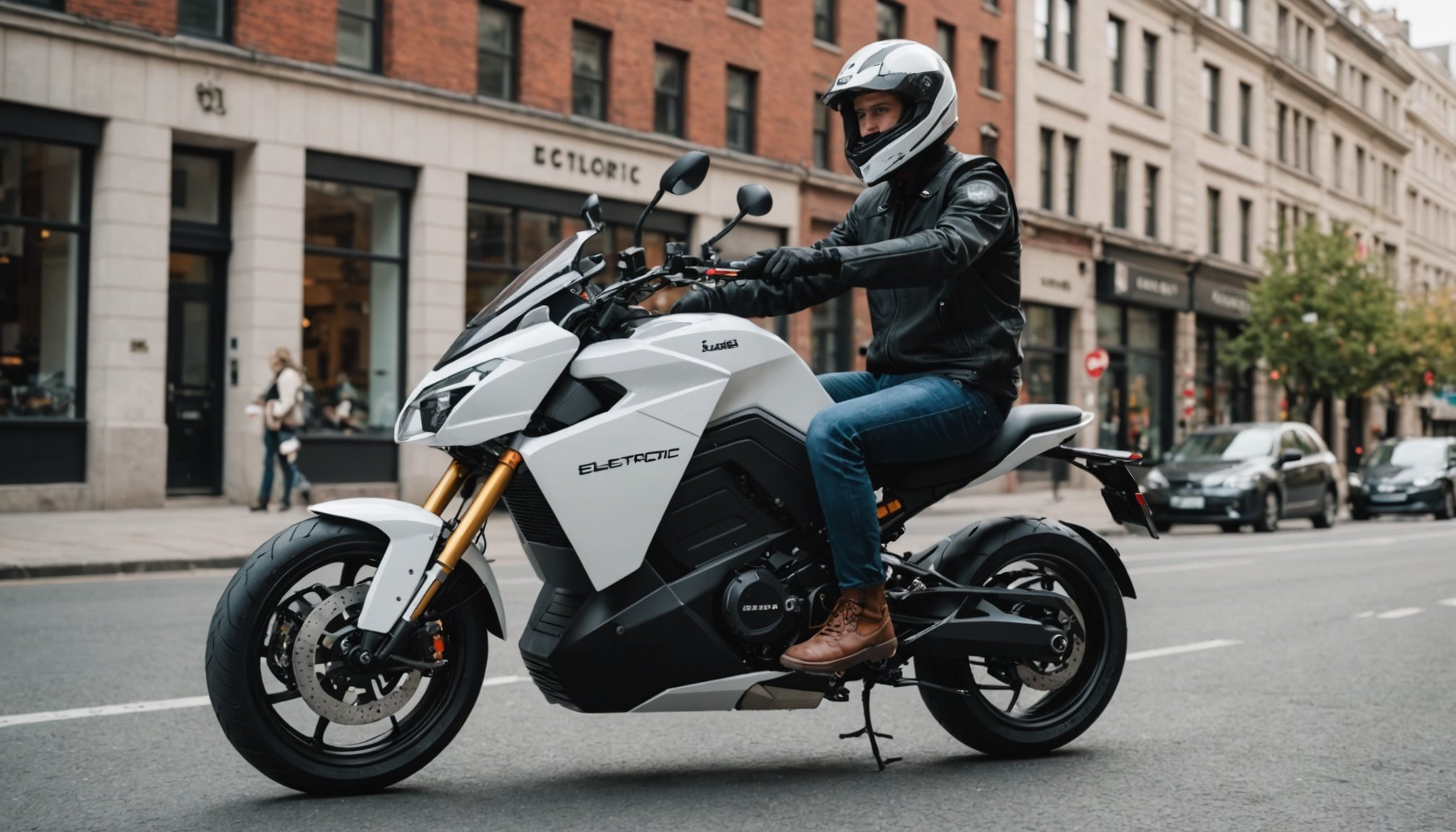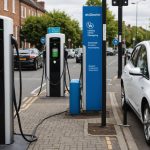Urban transportation is evolving, and electric motorcycles are at the forefront of this change. With cities getting more congested and traffic becoming a significant issue, traditional gas-powered vehicles are facing increased scrutiny. This article explores the advantages of riding electric motorcycles in urban environments, discussing their impact on traffic, cost, and overall urban living. Let’s dive into a future where two wheels can transform our city experience.
Understanding Electric Motorcycles
Electric motorcycles differ from their gas counterparts in various ways, primarily in their power source. These bikes utilize electric motors powered by rechargeable batteries, making them more sustainable and efficient than traditional motorcycles. The major components include a motor, battery, and controller, all designed to provide a smooth and powerful ride.
Additional reading : How can you protect your motorcycle from theft while parked in public places?
One significant advantage of electric bikes is their instant torque, allowing for quick acceleration. This feature is particularly beneficial in urban settings, where navigating through traffic quickly can make a difference in commute times. Additionally, the overall maintenance costs for electric motorcycles are generally lower than for gas-powered models. There’s no need for oil changes or complex exhaust systems, which can save you money in the long run.
Charging an electric motorcycle is straightforward and can be done at home, work, or at various public charging stations scattered throughout the city. Many modern bikes come with impressive ranges, often exceeding 100 miles on a single charge, suitable for daily commuting. In essence, understanding how electric motorcycles work highlights their potential to revolutionize urban transportation.
Also read : How do you safely transport your motorcycle on a trailer?
Environmental Benefits
When considering urban transportation options, the environmental impact is a crucial factor. Electric motorcycles contribute to reducing greenhouse gas emissions significantly compared to gas-powered motorcycles. They produce zero tailpipe emissions, which is a vital consideration as cities face challenges related to air quality and pollution. Riding an electric bike helps combat urban smog and contributes to cleaner air for all residents, making it a responsible choice for eco-conscious riders.
Moreover, the noise pollution associated with gas motorcycles can be bothersome in urban environments. Electric bikes operate almost silently, enhancing the quality of life for residents and creating a more peaceful atmosphere in bustling city streets. This noise reduction also fosters a more enjoyable riding experience, allowing you to appreciate your surroundings without the intrusive roar of an engine.
Adopting electric motorcycles aligns with the growing trend towards sustainable transportation in cities. Many urban planners are now promoting electric vehicles, offering incentives for riders to make the switch. This shift not only contributes to a cleaner environment but also paves the way for enhanced urban mobility solutions that prioritize sustainability.
Cost Savings and Economic Impact
Cost is a significant factor when choosing a mode of transportation, and electric motorcycles present an economical alternative for urban riders. Although the initial investment in an electric bike may be higher than that of a gas motorcycle, the long-term savings are often substantial. Electric bikes have lower operating costs, as electricity is cheaper than gasoline, and maintenance expenses are significantly reduced due to fewer moving parts and simpler technology.
Furthermore, many cities offer tax incentives, rebates, or grants to encourage the use of electric vehicles, which can help offset the purchase price. Riders who choose electric motorcycles may also benefit from reduced registration fees and exemptions from certain taxes, making the economic case for switching even more compelling.
In addition to individual cost savings, the widespread adoption of electric motorcycles can stimulate economic growth. As more riders transition to electric bikes, there is a growing demand for charging infrastructure and related services. This demand can lead to job creation in sectors such as manufacturing, installation, and maintenance of charging stations, further enhancing the economic landscape of urban areas.
Navigating Urban Traffic with Ease
Urban environments are notorious for their traffic congestion, leading to longer commute times and increased frustration. Electric motorcycles provide an effective solution to this problem by allowing riders to navigate through traffic more efficiently. Their smaller size compared to cars enables you to filter through lanes, which can significantly reduce travel time. In many cities, this ability to maneuver through traffic is not only a convenience but also a practical necessity.
Moreover, with the rise of electric bikes, many municipalities are starting to implement dedicated lanes and parking for two-wheeled vehicles. These initiatives not only enhance safety but also encourage more riders to consider electric motorcycles as an attractive option for daily commuting. The ability to park in smaller spaces further amplifies the appeal, allowing you to avoid the hassle of finding parking in crowded areas.
The agility of electric motorcycles also contributes to a more relaxed riding experience. Unlike larger vehicles, they allow you to engage with the urban environment, experiencing the city in a way that enhances your overall commute. As cities continue to evolve and address transportation challenges, the role of electric motorcycles in alleviating urban traffic congestion will undoubtedly become more prominent.
The Future of Urban Transportation
As we look towards the future, the role of electric motorcycles in urban transportation appears promising. With advancements in technology, the performance and accessibility of electric bikes are set to improve further. Battery technology is continuously evolving, leading to longer ranges, faster charging times, and even greater efficiencies. These developments will enhance the practicality of electric motorcycles for a broader audience, making them feasible for various commuting needs.
The push for sustainable transportation is gaining momentum globally. Governments are recognizing the need to reduce reliance on fossil fuels and are implementing policies that favor electric vehicles. The rise of smart cities is another exciting trend, where integrated technology improves urban living. In such environments, electric motorcycles could play a crucial role in developing efficient transportation networks that prioritize eco-friendliness and accessibility.
Additionally, the increasing availability of charging stations is making electric motorcycles more viable for urban riders. As cities invest in infrastructure, the fear of running out of charge diminishes, encouraging more people to choose electric bikes over traditional gas models. This trend indicates a significant shift in urban transportation dynamics, paving the way for a future where electric motorcycles become a mainstream choice for city dwellers.
Riding electric motorcycles in urban environments presents numerous advantages, from substantial cost savings and environmental benefits to enhanced maneuverability in traffic. As cities evolve and prioritize sustainable transportation solutions, the future of urban commuting looks promising for electric bikes. By embracing this modern mode of transportation, you’re not only making an economical choice but also contributing to a cleaner, quieter, and more efficient urban landscape. The transition to electric motorcycles is not just a trend; it’s a necessary step towards a brighter, more sustainable future in urban transportation.











